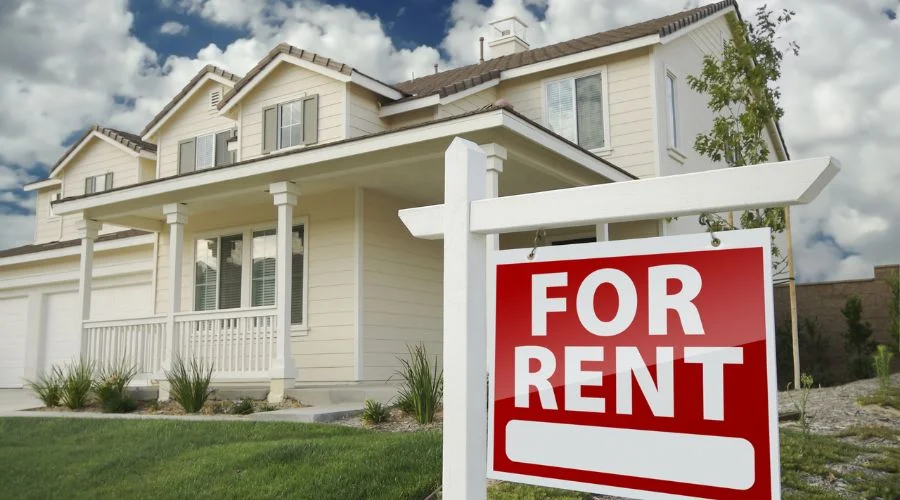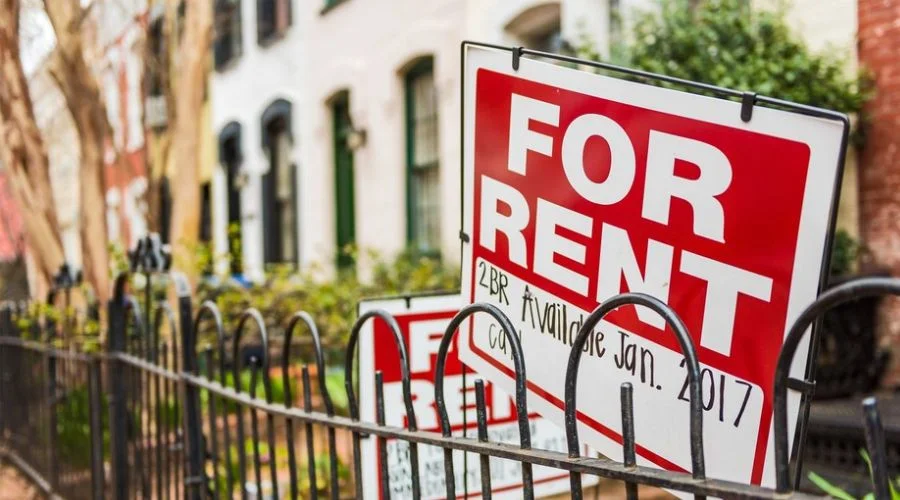If you’re renting in Colorado, you’ve probably wondered how much your landlord can legally raise your rent. The truth is, Colorado rent control laws are very different from those in other states. There’s no statewide cap, and local governments can’t enforce limits either. That makes it even more important to understand your rights, notice requirements, and what protections are available. LeaseRunner’s article will walk you through the essentials so you’re never caught off guard.
Overview of Colorado’s Rent Control Laws in 2025
Colorado has no state-wide or local ordinances. The Rental Housing Act of 1981 bars cities and counties from passing rent control ordinances. This sets Colorado apart from states that allow both rent control and rent stabilization, making its framework unique in the U.S. housing market.
Reasons the state lacks rent regulation include:
- Concern that the rent control overview could discourage the construction of new housing units.
- Real estate and development sectors argue that strict caps make rent adjustment methods harder to recover.
- Political dynamics, as many repeal bills have failed in the General Assembly due to landlord opposition.
Colorado does not limit how much landlords can raise rents. Yet, they still have to be subject to tenant rights and protections already in landlord-tenant laws.

Rent Increase Limits in Colorado
Colorado landlords raise rents based on the market rates. Although there are no rent increase limits, the state mandates that landlords can set a new rent amount only once in any 12 months of continuous occupancy.
These rules serve as rent increase guidelines, ensuring landlords comply with notice and frequency regulations even without a statutory cap.
Factors that Affect Rent Amounts
Under the framework of rent control laws, several factors influence how much rent landlords can charge or increase rent:
- Market supply and demand in metro areas like Denver, where demand outpaces supply.
- Lease agreement terms that may or may not allow mid-term adjustments.
- Property type and condition. For example, mobile homes or subsidized units follow rent control specifics. In some cases, legal issues like squatter rights affect rental status.
- The legal framework for rent control in Colorado, which bans statewide caps but mandates notice and frequency rules.
How the Lack of Rent Control Impacts Colorado’s Housing Stability
The absence of statutory rent caps under Colorado rent control laws has several implications:
- Greater risk of steep hikes when leases expire.
- Less predictability for household budgets.
- Displacement risk for low-income residents.
- Incentives for landlords to invest in new housing.
- More cost pressure when wages lag behind housing costs.

Rent Increase Requirements for Colorado Landlords
Understanding Colorado rent control laws is essential for both property owners and tenants. While the state does not impose strict rent increase limits, landlords must comply with clear landlord regulations to avoid disputes.
Notice requirements for rent increase
Under state-wide laws, landlords must follow a clear rent increase notification process before raising the rental rate.
- For increases under 10%: at least 30 days’ written notice.
- For increases of 10% or more: at least 60 days’ written notice.
The notice must specify the new amount and the date it takes effect. Any informal or unclear notice is invalid under legal rent increase rules in Colorado. Even exempt properties from rent control must follow notice rules.
When rent increases are restricted
Landlords cannot raise rent in some cases:
- They cannot adjust rents during an active lease without any approved personal reasons.
- As retaliation for tenant actions such as reporting code issues or requesting repairs.
- For discriminatory reasons banned under landlord-tenant laws, including race, religion, disability, or familial status.
- In mobile home parks that lack registration or compliance.
Moreover, the owner of properties with Section 8 vouchers must ask for approval of rent adjustment from regulatory agencies.
These rent control specifics act as tenant protections even without formal rent control.
Consequences of illegal rent increases
Landlords who ignore rent increase policies in Colorado may face significant consequences. Tenants can pursue landlord-tenant dispute resolution through court or mediation, leading to the increase being reversed.
In cases of discrimination or retaliation, courts may order legal penalties for landlords, including damages and attorney fees. Staying compliant with notice rules and fair practices protects both parties and avoids costly disputes.

Eviction Protections for Colorado Tenants
Colorado has some of the weakest tenant protections among all laws in the U.S.. Renters are more vulnerable in disputes with landlords. Safeguards exist, but are fewer than in states with stronger landlord-tenant laws. Because Colorado rent control laws block local caps, eviction rules, and due process rights play a critical role.
The state now requires “cause” to remove a renter. No-fault removals are allowed only in specific cases: demolition, major rehab, owner move-in, sale, refusal to sign a new lease, or repeated late payment. These actions need longer notice, usually 90 days.
Tenants can also use habitability and retaliation defenses, and a court cannot lock out a renter without legal process. These rules are part of a broader eviction process designed to balance landlord rights with basic renter protections.
Local add-ons that strengthen eviction defense include:
- Denver provides free right to counsel, rental licensing, and extra safeguards.
- Boulder offers Eviction Prevention and Rental Assistance Services, with legal representation for eligible tenants.
Practical Guide for Tenants to Negotiate Rent Increases
Colorado has no local caps on rent, so your leverage comes from timing rules, notice rules, and evidence. Use Colorado rent control laws to frame the conversation: a landlord may not raise rent more than once in any 12 months, and oral (no-writing) tenancies require at least 60 days’ written notice before any increase. Keep your ask specific, brief, and tied to statute.
Verify whether the rent increase is reasonable
- Check if the proposal would be a second increase within 12 months, which is not allowed under state law.
- Make sure the notice matches the required periods (30 or 60 days, depending on the lease).
- Compare the new rate with similar local rentals to confirm it aligns with the market.
- Use the rent increase notice templates to confirm that the landlord included all required details.
This is where Colorado rent control laws help you steer the discussion toward fairness rather than caps.
Demonstrate your care for the property
Bring receipts: on-time payment history, quick maintenance reporting, and clean inspection notes. Offer access for minor repairs and show renewal stability (job, schooling, length of stay). Responsible tenancy lowers turnover risk, which can justify a smaller adjustment under rent control laws. Highlighting your reliability strengthens your position if any rent increase dispute resolution process becomes necessary.
Request concessions
Propose options the owner can say “yes” to: a smaller increase in exchange for a longer term, a phased bump over several months, or modest upgrades (e.g., weatherproofing) instead of a larger rent jump. If the lease lacks a mid-term increase clause, remind them that changes must wait until the term ends.
Anchoring your counter with statute-backed timing keeps the ask reasonable under Colorado rent control laws. In some cases, landlords use a legal rent increase calculation or a basic rent increase formula to justify adjustments; knowing these methods lets you challenge inflated numbers with market evidence.
Next steps if negotiation fails
Ask for a written notice stating the exact new amount and the effective date. Verify it follows the one-increase-per-year rule and any notice period that applies to your situation. If the hike appears retaliatory, discriminatory, or unconscionable, document it and consider formal remedies under state law.
In tough cases, tenant dispute resolution services may guide you through complaints or mediation. Keep your communications short, courteous, and statute-referenced - rent control laws in Colorado are about process, and using that process is your best leverage.

Best Practices for Landlords to Avoid Tenant Disputes
Managing rental properties in Colorado requires careful attention to detail. Since Colorado rent control laws ban local caps on rent increases, landlords must rely on strong communication, transparent agreements, and proper legal guidance to avoid conflicts. The following best practices help landlords stay compliant while building positive relationships with tenants.
1. Craft a clear lease agreement with tenants
Landlords should prepare a clear contract with the tenant to avoid misunderstandings with tenants. It must include important information such as the rent amount, due date, and both parties’ responsibilities during the lease term. You can use LeaseRunner’s lease agreement templates to cover all essential information and stay compliant with the state-specific laws.
Additionally, you should check the applicants’ eviction history, criminal background, and income source before making a leasing decision. The careful tenant screening process enables you to avoid choosing the wrong renter. It safeguards your investments with instant eviction checks, credit checks, and income verification.
2. Use legal mediation services
When disagreements arise, mediation offers a neutral and cost-effective way to resolve issues before they escalate. Trained mediators guide discussions, helping landlords and tenants find common ground on rent payment, repairs, or other housing concerns. This proactive approach demonstrates good faith and supports landlord dispute management, reducing the risk of long-term disagreements.
3. Join a landlord Colorado association
Being part of a landlord association provides access to valuable tools and guidance. Key benefits include:
- Legal updates on eviction rules, handling tenant disputes, housing standards, and rent control laws.
- Training resources on compliance and property management.
- Networking opportunities with other landlords to share strategies and solutions.
4. Seek advice from Local Housing Authorities
Local housing authorities can guide landlords on compliance with habitability standards, inspection requirements, and tenant rights. Consulting these agencies ensures that landlords remain aligned with state regulations.
Since Colorado rent control laws restrict local regulation, landlords must instead focus on proper notice and fair practices, such as negotiating rent increases with tenants in a transparent way.
5. Consult with a landlord-tenant attorney
Legal counsel is essential when facing complex disputes or questions about state statutes. An experienced attorney can advise landlords on eviction procedures, discrimination claims, or issues involving lease enforcement. Professional guidance helps ensure compliance with rent control laws, addresses rent control exemptions for certain properties, and reduces the likelihood of costly litigation.
Conclusion
Colorado rent control laws are considered one of the weakest rent law systems in the U.S. This is due to the absence of state-wide laws and local rent control ordinances. This status causes the increasing housing costs. To avoid legal disputes between landlords and tenants, both parties should understand their rights and the rent increase rules. Particularly, the owners need to learn some tips to resolve the conflicts.
LeaseRunner provides screening services and legal resources for landlords to reduce the problems with tenants in the beginning. Follow the correct procedures to mitigate the risks of getting penalties.
FAQs
1. What is the most a landlord can raise rent in Colorado?
Under Colorado rent control laws, there is no statewide cap on rent increases. Landlords can raise rent by any amount as long as they provide proper notice: 30 days for increases under 10% and 60 days for increases of 10% or more. The only limits apply to mobile home parks or subsidized housing, where specific rules restrict frequency and conditions.
2. Is rent control legal in Colorado?
No. Since the Rental Housing Act of 1981, rent control laws in Colorado prohibit cities and counties from enacting local rent control ordinances. This means no municipality can impose caps on how much landlords can increase rent. While tenant advocates have pushed for repeal, efforts to allow local rent control have consistently failed in the state legislature due to opposition from landlords and developers.
3. Is Colorado a renter-friendly state?
Colorado is often viewed as less renter-friendly compared to states with rent stabilization. Because Colorado rent control laws ban rent caps, tenants may face higher rent hikes when leases end. However, tenants do have protections such as notice requirements, anti-discrimination rules, and eviction process rights. Whether it feels renter-friendly depends largely on market conditions and how well tenants understand their rights under state landlord-tenant laws.



